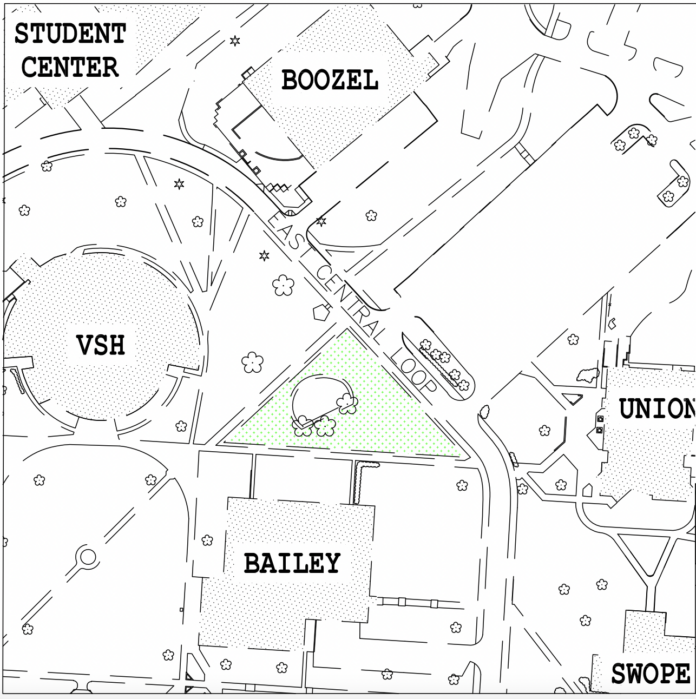On March 29, 2023, previous SRU president William Behre’s cabinet approved the university’s new Expressive Activity policy. The policy designates three areas on campus where those who are not members of the university community may practice their First Amendment right to free speech.
As SRU is a public state institution, the university legally must allow members of the public to speak on campus. Courts have ruled, however, that institutions may place limits on time, place and manner of speech. SRU’s new Expressive Activity policy does just that.
Before the COVID-19 pandemic, it was common for individuals to exercise this right at SRU. The presence of outside speakers slowed during the height of the pandemic, but since the 2022-23 academic year, speakers have returned.
Students have expressed discomfort, unease and annoyance toward certain speakers’ ideologies.
One who receives these student stories is David Wilmes, Chief Student Affairs Officer. Wilmes spoke about the making of the Expressive Activity policy.
“The idea came from conversations with students in terms of experiences they had had on campus, broadly, over years,” Wilmes said.
Along with the student feedback, the university received a template for the policy from legal counsel. Wilmes’ role was drafting a version made for SRU campus.
As stated in the policy and depicted on accompanying maps, the three zones where members of the public may speak are down the hill from the 9/11 memorial, the North Hall lawn and the block “S” between Patterson and Weisenfluh.
“[A small group from Student Affairs] chose places that would create a balance for the rights and expectations of our students versus the rights of individuals in the community who want to speak,” Wilmes said. “So, we chose places that were in the campus proper, that still provided an opportunity for their message to be heard. However, by putting some restrictions on where, that also allows students to avoid those spaces if they don’t want to hear that messaging.”
The university values both the First Amendment and the comfort of the campus community as individuals go about their days.
“The university promotes free speech–we want people and we must allow people to express their views on our campus,” Wilmes said. “At the same time, we recognize that students, faculty and staff don’t always want that speech at all times in all places…They have some ability to say, ‘Well, I don’t want to listen to that, so I’m going to take a different route, or I’m going to avoid that place.’”
SRU’s new policy fits into larger conversations about free speech, especially on university campuses.
“It’s incredibly important as an educational institution that we support and uphold free speech, and we don’t want to infringe on someone’s speech just because we disagree with their ideas,” Wilmes said.
He then differentiated free speech, discussion and debate among students and faculty in the classroom from free speech professed by outside individuals in less structured spaces. The policy does not apply to or limit the free speech of students, faculty or staff.
“As a state institution, we still have to allow [outside individuals] to express those views, even if as an institution, we disagree,” Wilmes said. “We have said as a university that we care about diversity, equity, inclusion and belonging, that we want students from all backgrounds to come together and learn and be part of our community”
So far this semester, Student Affairs and University Police have had to inform four or five individuals from off-campus about the policy. The speakers are given a copy of the policy and asked to move to a designated location.
“So far, everyone has adhered to the policy. It was more their responses were, ‘Well, I didn’t know,’” Wilmes said.
Besides SRU, other Pennsylvania State System of Higher Education (PASSHE) schools have enacted similar policies in recent years.








